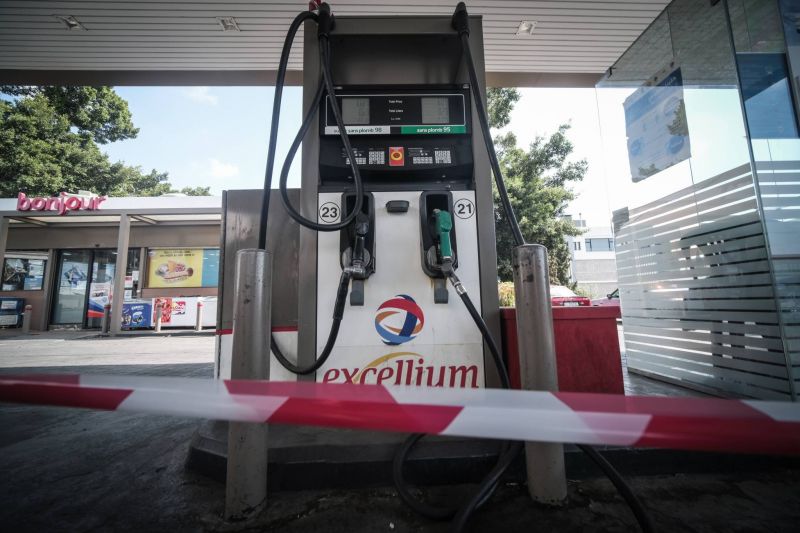
Fuel prices increased by another 10 percent this morning — the second time this week that gas prices have jumped. (Credit: João Sousa/L’Orient Today)
Fuel prices increased by another 10 percent this morning — the second time this week that gas prices have jumped. The cost of 20 liters of 95-octane gas rose by LL9,000 to LL70,100; of 98-octane, by LL9,300 to LL72,200; and of diesel, by LL8,300 to LL54,400. The cost of a tank of household gas went up LL4,000 to LL41,600. The new rates come days after the Energy Ministry already bumped up prices by 30–45 percent, following the government’s decision to shift the subsidy rate of fuel imports from about LL1,500 to the US dollar to LL3,900 to the greenback. A statement from outgoing Premier Hassan Diab’s last week said the move is aimed at alleviating fuel shortages and drawing in dollars during the summer tourist season. However, the hourslong queues at petrol stations throughout the country have yet to ease.
Meanwhile, the Economy Ministry has raised the per-gram price of bread for the eighth time this year. The ministry’s announcement, which came late yesterday evening and just eight days after it last hiked bread prices, cited the central bank’s de facto cessation of subsidies on sugar and yeast as factors in the increase. The per-gram price of large bread bundles in bakeries rose by 23 percent and will now sell at LL3,500 for an 865-gram bundle, while 420-gram bundles will now cost LL2,500 in bakeries, an 18 percent price jump. The price of bread is determined by several factors, including the price of packaging and the international prices of wheat, sugar and yeast. At the time of last week’s increase, the Economy Ministry told L’Orient Today that the central bank had failed to pay for sugar subsidies, which was a contributing factor to the rise in prices; however, sugar accounts for a relatively small proportion of the ingredients in Arabic flat bread.
An “exceptional credit” law to fund a ration card system that would see Lebanon’s poorest families receive an average of $93 a month moved a step closer to realization. Parliament voted to pass the law during a lengthy and sweaty session yesterday at UNESCO Palace, where the air-conditioning system was nonoperational for most of the day. The law’s passing was met with skepticism on social media as some political figures and analysts criticized the leeway it allows Lebanon’s caretaker cabinet to determine implementation mechanisms such as who would be eligible for assistance, contending that this could render the law vulnerable to partisan manipulation. Critics also condemned the law’s lack of clarity on key details such as how the program — which will cost $556 million in its first year — would be funded. Reconvening after an afternoon recess, Parliament galloped through the remainder of a more than 70-item agenda before concluding the first day of what was originally intended to be a two-day session.
Armed residents fired bullets in the air in several neighborhoods of Tripoli yesterday afternoon. Although a rumor circulated that the gunfire began after the army tried to raid a house in the Bab al-Tabbaneh neighborhood in search of a wanted convict, residents and local media reports suggested that the stunt was aimed at drawing attention to the worsening living conditions in the city amid the country’s economic crisis. By about 5 p.m., Tripoli’s mayor reported that the army had restored calm across most of the city. Yesterday’s incident followed days of protests and roadblocks in the tense northern city that have resulted in the injury of dozens of protesters.
Pope Francis will receive Maronite Patriarch Bechara al-Rai and other Lebanese Christian leaders at the Vatican today. The delegation, which arrived in Rome yesterday, is expected to partake in a “day of reflection on the worrying situation in [Lebanon]” and prayer “for the gift of peace and stability.” Lebanon has been without a fully empowered government for nearly 11 months, as political bickering persists between President Michel Aoun — the founder of the Christian Free Patriotic Movement — and Sunni Prime Minister-designate Saad Hariri.
